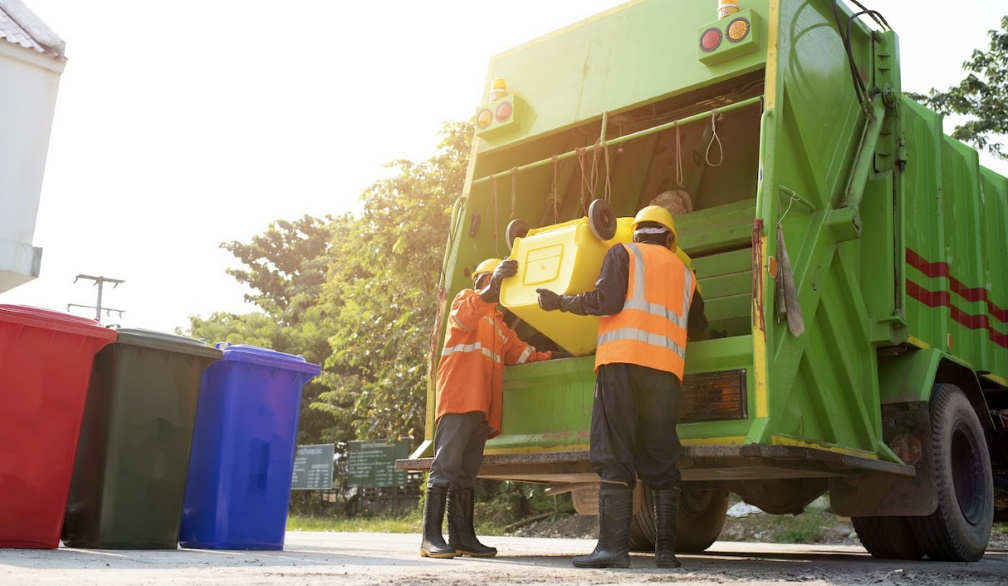6 Ways To Effectively Solve Your Rubbish Problem
- Written by NewsServices.com

One of the leading environmental problems the world still faces today is the continuous piling of rubbish. The landfills around the world continue to increase and pile up, leading to more landfill waste. Unfortunately, the more landfill waste is produced, the more it poses a huge threat to the environment. The landfill waste usually takes hundreds and thousands of years before it fully decomposes, resulting in polluted soil, water, and air.
Fortunately, this issue can still be resolved, but only if each household in the entire world cooperates in solving their own rubbish problem at home. Even your smallest effort of reducing waste can already bring macro impacts in saving the world from more waste. You don’t really need to pull off extensive efforts and major projects to help. Sometimes, it’s all about changing your habits and reducing your home waste that counts.
So, how can you do it? If your clean-up goal is also aligned with environmental conservation, here are six ways you can effectively solve your rubbish problem.
- 1. Learn To Donate
Did you know that one of the biggest contributors to landfill waste today is your clothes? That’s because clothes are the most common products people worldwide buy every single day. When you check your closet and can’t find anything to wear, you tend to buy new clothes and get rid of the old ones. They go into your garbage bins. From your garbage bins, they travel to the landfill.
Instead of tossing them away without a second glance, you can make better use of them by donating them to charities. Meanwhile, for your damaged and irreparable clothes, you can pack them in a box and hire a rubbish removal service online. For example, if you’re in the vicinity of Melbourne, you can search for them like this URL. They’ll dispose of the damaged clothes for you.
- 2. Reduce Food Waste
Next to clothes, the second most common waste you produce at home is food waste. Every day, you prepare meals. After consuming them, you tend to produce waste you toss in your garbage bin right away. Instead of simply throwing away the leftovers, why not save them for the next day? Eating leftovers, as long as they’re still viable, will not only reduce waste, but it’ll also help you save money. After all, each household has its own fridge to store its leftovers.
Meanwhile, for the food waste produced from meal preparation (e.g., fruit peels), you can collect them and turn them into compost. If you have extra space in your backyard, you can create your own compost pit, and recycle your food and kitchen waste. The soil from the compost pit can then be used as fertilizer for your garden.
- 3. Bring Your Own Bag
Perhaps you haven’t noticed that you’re adding more waste and rubbish into your home every time you get home from shopping. Every time you go out for groceries, certain supermarkets you visit may give you plastic bags to wrap and carry all your bought items. Eventually, you’re left with more plastic bags in the house, leaving you with more waste.
Thus, whenever you go shopping, always remember to bring your own reusable bag. You can keep one in your car, so you won’t forget when you leave the house. When supermarkets offer you plastic bags, don’t be embarrassed to turn down their offer, and let them use your reusable bag instead.
- 4. Steer Clear Of Water Bottles
Billions of plastic water bottles are produced and thrown away every day. To solve your rubbish problem at home, don’t be one of those people who use water bottles and dispose of them carelessly. Instead, you can switch to a reusable water tumbler and carry it around with you wherever you go. This way, you can easily refill your tumbler without producing any waste. Plus, you get to save money when you stop constantly buying plastic water bottles in the market.
- 5. Avoid Purchasing Single-Use Items
As much as buying single-use items can bring more convenience, it also comes with a consequence, worsening your rubbish problem. Since they’re intended for single use, it only means you’ll have to throw these items in your garbage bins right away after using them. To get rid of this entire issue, avoid purchasing single-use items at all. These include straws, plastic plates, cups, and cutlery.
- 6. Learn To Repair Items
Some people tend to throw away their furniture and other items as soon as they show signs of crack or damage. Unfortunately, doing this can only lead to more rubbish problems for the community.
To help resolve the waste issue in your town, it’s time to get handy! Learn to repair items before you think of buying new ones right away. The good thing is that more and more DIY (do-it-yourself) articles and video tutorials are available on the internet, which can help you in repairing items.
Conclusion
Let these tips help you get started on making eco-friendlier habits. As you see, even the most minor efforts can already be impactful toward solving your rubbish problem at home. You also help the Earth become a healthier and cleaner place.




















